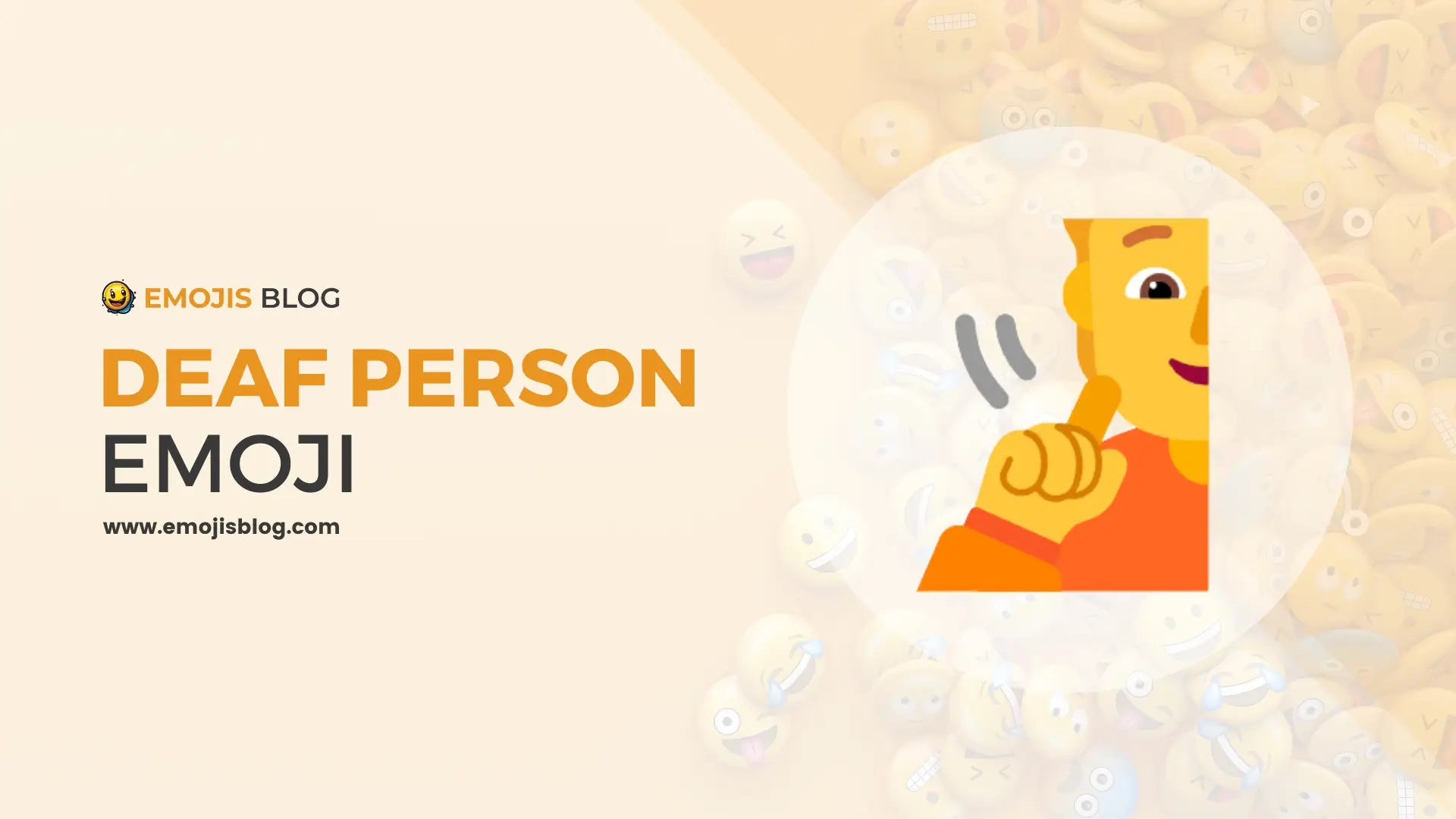What Does The Deaf Person Emoji Mean 🧏
🧏
Deaf Person Emoji Meanings 🧏
The deaf person emoji 🧏 depicts a person with their index finger touching their ear, symbolizing that they are deaf or hard of hearing. Introduced in 2019 with Emoji 12.0, it represents the deaf and hard-of-hearing community, promoting inclusivity and awareness in digital communication. Available in various skin tones and genders, this emoji is used to indicate hearing impairment, celebrate deaf identity, and highlight accessibility issues, contributing to a more diverse and accepting online environment.
Technical Information
| Attribute | Description |
|---|---|
| Unicode | U+1F9CF |
| Name | Deaf Person |
| Introduced | Emoji 12.0 (2019) |
| Shortcode | :deaf_person: |
| Skin Tones | Yes, supports Fitzpatrick scale skin tones |
| Genders | Gender-inclusive, with variants for male (🧏♂️) and female (🧏♀️) |
| Platforms | Available on major platforms (Apple, Google, Microsoft, Samsung, etc.) |
| Category | People & Body |
| Subcategory | Person-Gesture |
| HTML Entity | 🧏 |
| Usage | Indicating deafness, raising awareness, celebrating deaf identity |
| Presentation | Emoji (fully-qualified) |
Understanding the Deaf Person Emoji 🧏
Introduction to Emojis
Emojis have become a fundamental part of digital communication, allowing users to convey emotions, actions, and ideas without words. These small icons have evolved to represent a wide range of expressions and identities, making conversations more dynamic and inclusive.
The Emergence of the Deaf Person Emoji 🧏
The deaf person emoji 🧏 was introduced to represent the deaf and hard-of-hearing community, providing a visual means to acknowledge and include their experiences in digital communication. This emoji is part of a broader effort to ensure that emojis represent the diversity of human experiences and identities.
Visual Description and Variants
The deaf person emoji 🧏 typically depicts a person with their index finger touching their ear. This gesture is commonly associated with indicating that someone cannot hear or is hard of hearing. The emoji is available in various skin tones and genders, ensuring representation and inclusivity for all individuals.
Unicode and Representation
The deaf person emoji 🧏 was added to the Unicode Standard in 2019 with the release of Emoji 12.0. Unicode is a universal character encoding standard that ensures consistent representation of text across different devices and platforms. By including the deaf person emoji, Unicode acknowledges the importance of representing diverse communities.
Significance and Usage
The deaf person emoji 🧏 holds significant value in promoting awareness and understanding of the deaf and hard-of-hearing community. Its usage goes beyond mere representation; it fosters inclusivity in digital communication. People use this emoji to:
- Indicate Hearing Impairment: To communicate that they or someone else is deaf or hard of hearing.
- Promote Awareness: To highlight issues related to the deaf community, such as accessibility and inclusivity.
- Celebrate Identity: To embrace and celebrate their identity as a deaf or hard-of-hearing individual.
Accessibility and Inclusivity in Emojis
The inclusion of the deaf person emoji 🧏 is part of a broader trend towards accessibility and inclusivity in the digital world. Emojis like the hearing aid emoji, the prosthetic limb emoji, and the service dog emoji also contribute to this effort. By representing a wide range of abilities and identities, these emojis help create a more inclusive digital environment.
The Impact of Inclusive Emojis
Inclusive emojis like the deaf person emoji 🧏 have a positive impact on society. They:
- Raise Awareness: Encourage conversations about the experiences of marginalized communities.
- Promote Representation: Ensure that all individuals see themselves represented in digital communication.
- Foster Inclusivity: Help create a more inclusive and accepting digital space.
Conclusion
The deaf person emoji 🧏 is more than just a digital icon; it is a symbol of representation, inclusivity, and awareness. As emojis continue to evolve, the inclusion of diverse identities and experiences will play a crucial role in shaping a more inclusive digital world. By using and understanding the significance of emojis like 🧏, we can contribute to a more inclusive and empathetic society.

